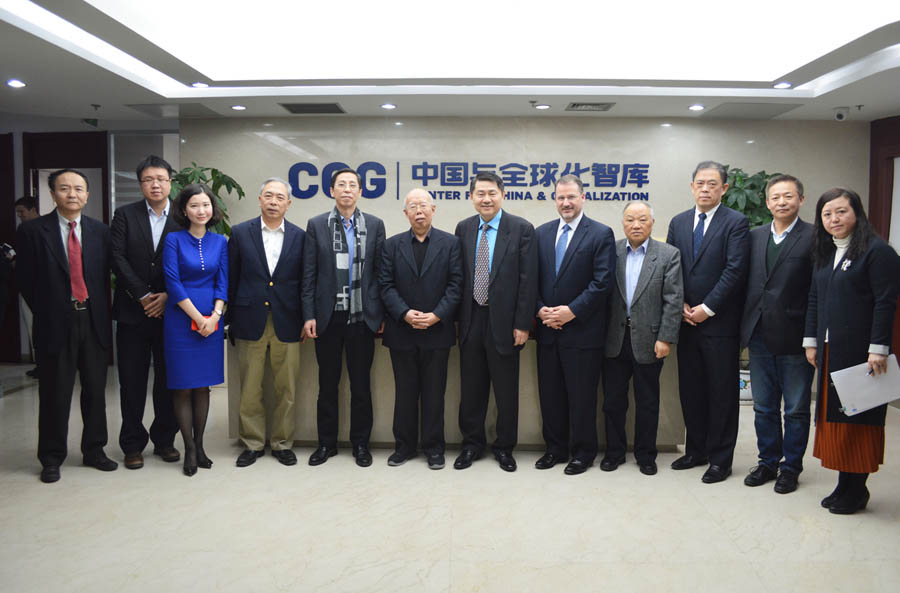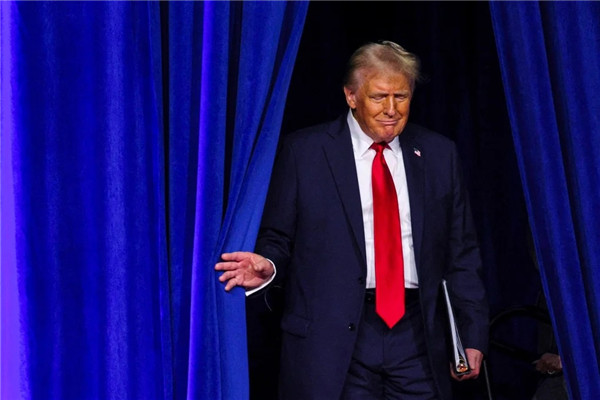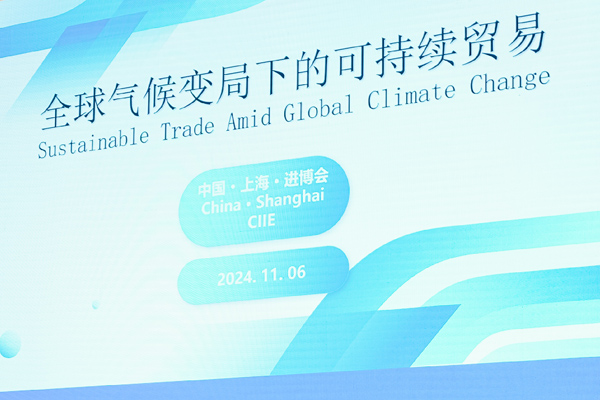CCG Releases Report on China-US relations in Trump Administration
May 27 , 2019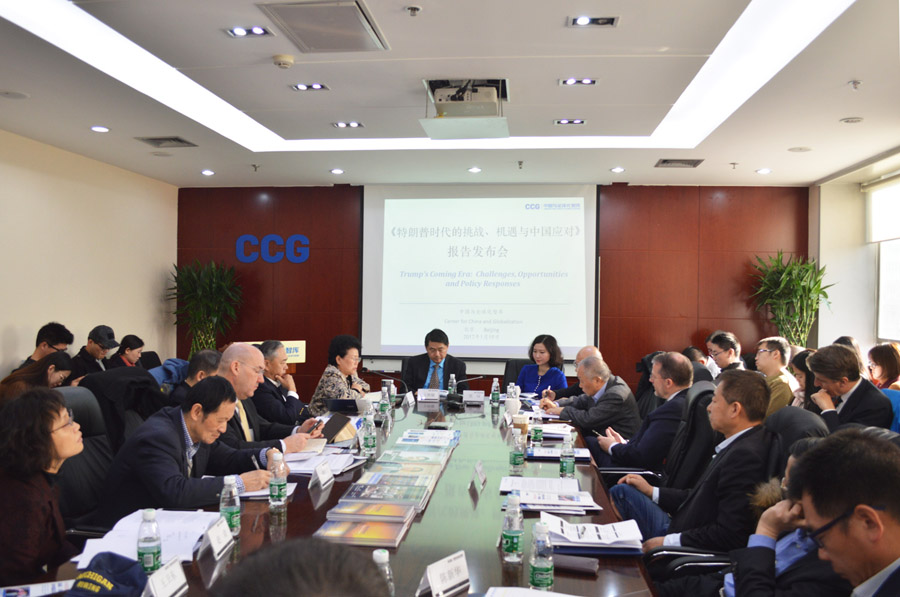
One day before Donald Trump is sworn in as the 45th US president on Jan. 20, the Center for China and Globalization releases a report that previews his presidency from Chinese perspectives and provides recommendation on how to navigate the China-US relations through this historical change.
Download PDF [English Version] 【Chinese Version】
Presenting the new report Trump’s Coming Era: Challenges, Opportunities and Policy Responses at the releasing ceremony, CCG President Wang Huiyao says that CCG scholars have been closely watching the US political situation since the beginning of the presidential elections, given its influence on the relations between China and the U.S., the two largest economic powers, as well as the whole world.
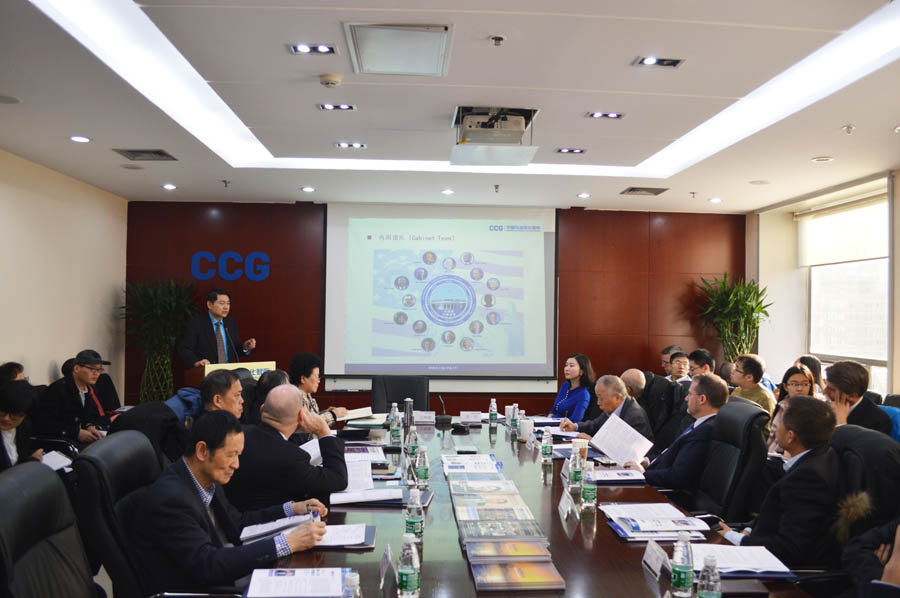
According to Dr. Huiyao Wang, this report provides analysis about Trump’s personalities, his cabinet selection, and current state of the bilateral relations, and identifies potential challenges and opportunities in Trump’s presidency. In addition, the report proposes 10 viable policy measures to maintain the smooth development of the Sino-US relations.
Following Wang’s introduction, 14 CCG scholars, journalists from 50 medias and other guests joined in a three hour-long discussion, sharing their opinion and ideas about the impact of the US presidential transition on the bilateral relations and the world political and economic situation.
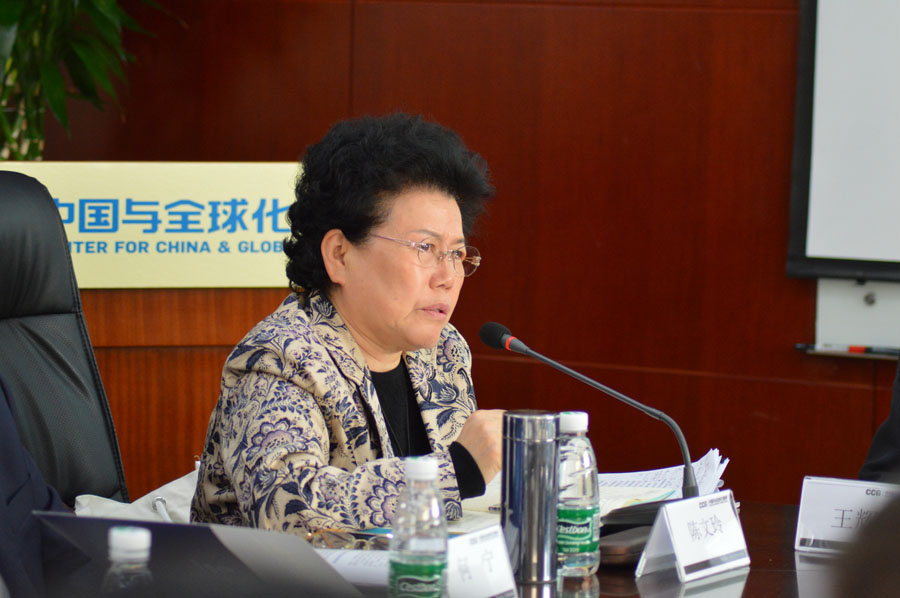
Chen Wenling, chief economist of the China Center for International Economic Exchanges, warns of de-globalization, trade war and currency war as the major challenge that may inflict serious damage on both sides, especially on America that will lose a lot of job opportunities and contracts because of China’s response, and put the Sino-US relations on the risk of destruction.
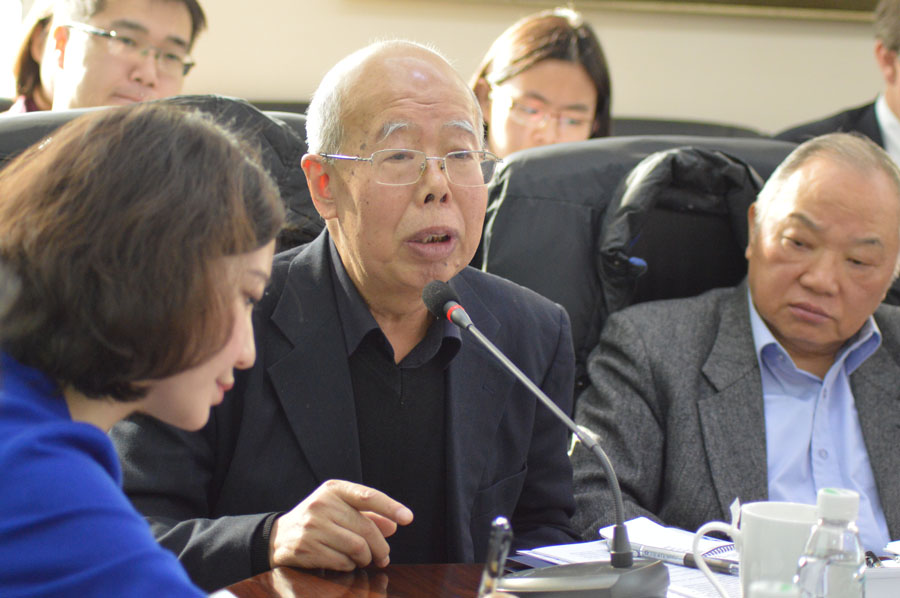
Secretary General of Asian Pacific Fund Chen Yonglong also agrees that neither China nor America can benefit from the trade war, but it may cause more damage to American economy. He suggests that China stick to its principles and policies to cope with the new challenges in the Sino-US relations from the US presidential transition and policy changes.
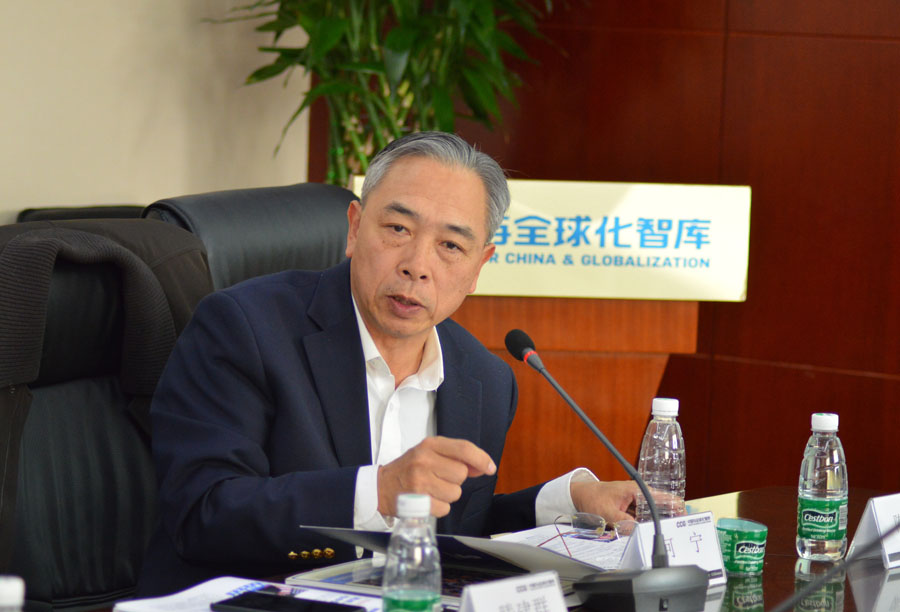
He Ning, the former director-general of the Department of American and Oceanic Affairs at the Ministry of Commerce and CCG nonresidential senior research fellow, fells positive about the future Sino-US economic relation. He believes that during his presidential campaign, Trump’s remarks were largely exploratory, not revealing his real policy inclinations. The new president should have realized that his pledge to “make America great again” cannot be made possible without the financial and technical support from the second economic power. Also, as a president, his power and mentality will be subjected to the restriction of the political system and not lead to any extreme actions.
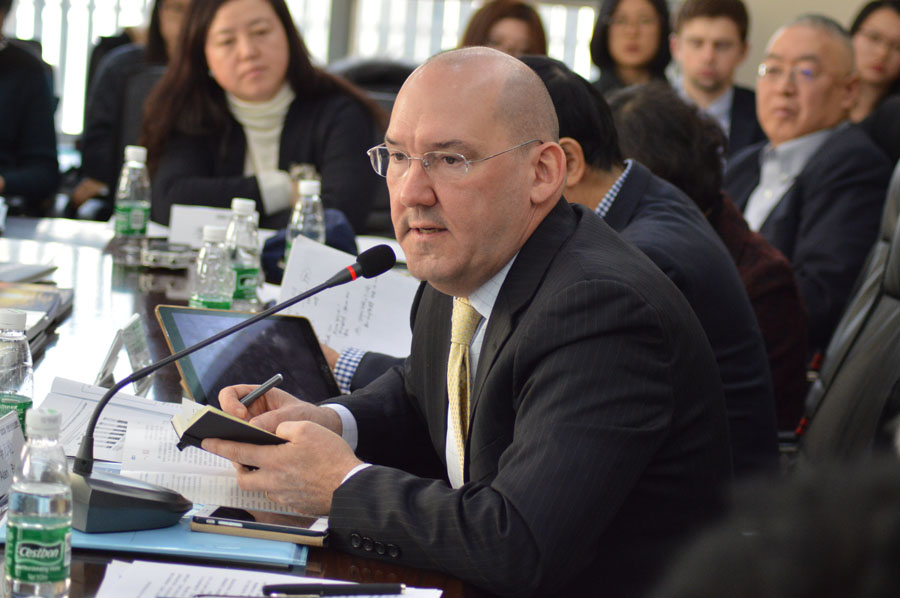
President of American Chamber of Commerce in China Alan Beebe also emphasizes the role of Chinese companies in the bilateral trade cooperation. He calls to improve the transparency of China’s industrial policies and environmental protection policies to help Chinese and American companies reach win-win deals.
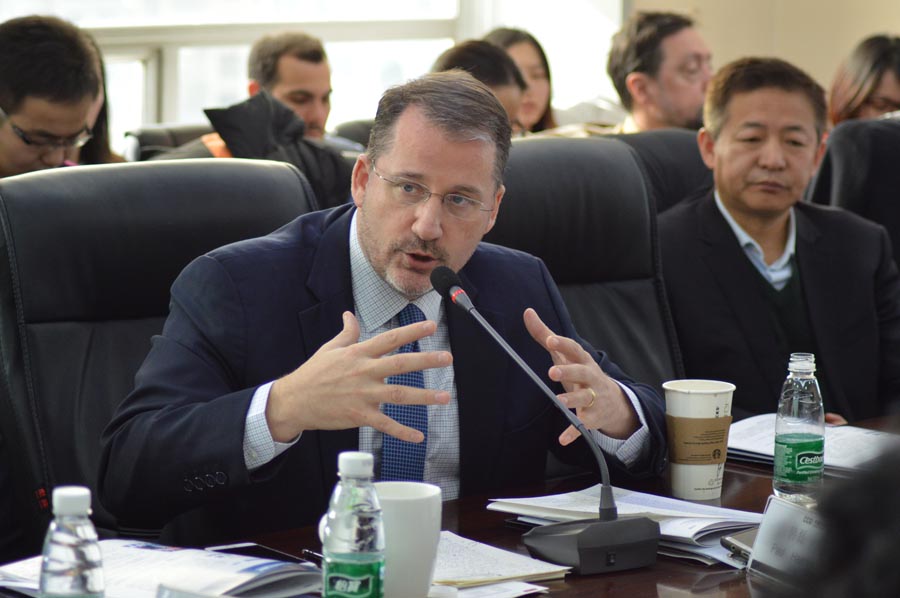
On Trump’s attempt to challenge “One China” policy and launch a trade war against China, Paul Haenle, the director at the Carnegie–Tsinghua Center for Global Policy, says One-China principle is not only China’s interests, but also a benefit to American and international community. “A trade war would not be good ultimately for either China or the United States, it would hurt American companies”. He suggests that China should be patient, keep a stable policy to U.S., and find channels of communication, engage American officials at all levels.
He Weiwen, the former Economic and Commercial Counselor at the Chinese consulates in San Francisco and New Yorkand CCG’s Vice President, suggests that China should identify the real cause of the trade friction and proactively communicate with Trump administration presenting facts. However, compared to the potential trade war, Trump’s challenge of “One China” principle should cause more concern. He believes that if Trump seeks to build official relations with Taiwan authority, it will cause grave damage to the bilateral relations fundamentally.
Zhu Yinghuang, Editor in Chief of ChinaUSFocus.com and former Editor-in-Chief of China Daily, noted that China will have to stay alert with Trump administration’s challenge on the South China Sea dispute. On this issue, Trump may be open to negotiation like a businessman, but his policies do not just represent his own belief but also bipartisan interest that can hardly be reversed. Zhu also pointed out that economic cooperation will continue to play a key role in the development of Sino-US relations. Although trade friction in some areas is inevitable, it will not go far leading to a trade war that hurts both sides. One of the measures to promote economic relations is to maximize the role of MNCs as stabilizers.
Teng Jianqun, Director of the Department for American Studies at China Institute of International Studies, argued that Trump’s business mentality and background has become a major factor in his decision making. For instance, several of his cabinet nominees are from the Wall Street. After sworn-in, he may employ such business mentality to “manage” domestic politics and make deals in international relations. Therefore, he advises that taking into consideration of Trump’s business orientation, Chinese government can design the strategies to strengthen bilateral cooperation in national security and economic development to minimize conflict and create new impetus for the development of the Sino-US relations.
Lv Xiang, an expert on US policies from Chinese Academy of Social Sciences and CCG’s nonresidential senior research fellow presents a detailed analysis about Trump’s election and policies. He believes that the core of Trump’s proposed domestic policies is to unleash the productivity on the supply side by expand production capacity in traditional industrial sectors such as coal and gas. Accordingly, his foreign policies are centered on the “supply-side interventions”, which aims to expand the US influence by containing other countries’ power. The OPEC countries in the Middle East and Northern Africa will become the first target of the intervention, followed by China. Trump administration, as he foresees, will try all the economic and diplomatic tools to constrain China’s productivity. “Although he has a very good senses of politics and strategy, but as he lacks of systematic understanding to American and global affairs, so his governing capacity is still a question. The interests groups behind him would probably remove him from the office sometime in future. So, we should closely observe the progress in American politics”.
